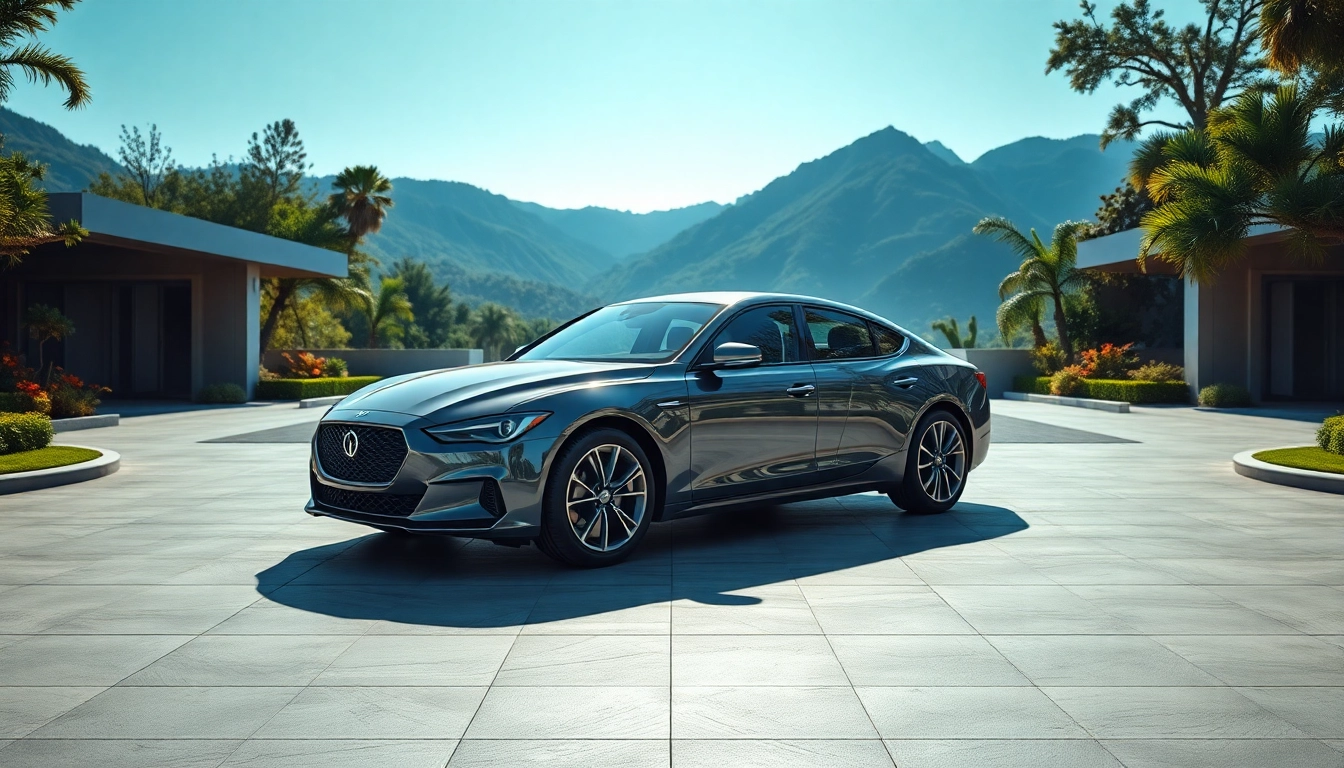Understanding What Makes the Perfect Car
Finding the perfect car is a nuanced journey that varies for each individual. Car buyers are often faced with a myriad of options, features, and specifications, each of which plays a crucial role in selecting the ideal vehicle. To understand what constitutes the perfect car, we first need to define our personal criteria, followed by evaluating available options, budgeting effectively, and conducting thorough inspections. This guide explores each of these components in detail, providing readers with actionable insights into making an informed choice.
Defining the Perfect Car for Your Lifestyle
The first step in finding your perfect car is to define what ‘perfect’ means for you personally. A perfect car is not a one-size-fits-all solution; it largely depends on your lifestyle, needs, and preferences. Are you a city dweller who values compactness and efficiency, or do you have a family that necessitates spaciousness and safety?
For instance, if you often navigate through congested urban environments, a compact car or an electric vehicle with exceptional fuel efficiency might be ideal. Conversely, families may prioritize vehicles with more space—like SUVs or minivans—alongside safety features. The answer to what makes the perfect car lies in understanding your day-to-day activities and aligning them with vehicle functionalities.
Key Features to Consider
Once you’ve gauged your lifestyle needs, it’s essential to focus on key features that enhance the driving experience. Here are some critical features to prioritize:
- Safety Features: Advanced Driver-Assistance Systems (ADAS) such as lane-keeping assist, automatic emergency braking, and adaptive cruise control are becoming increasingly standard in modern vehicles. Prioritize models that offer extensive safety ratings from reputable testing organizations.
- Fuel Efficiency: Whether you’re considering electric, hybrid, or traditional combustion engines, fuel efficiency can significantly reduce long-term costs. Research the EPA ratings of potential models to get a better idea of their efficiency on highways versus city driving.
- Technology Integration: Today’s cars often come equipped with cutting-edge technology, including infotainment systems, Bluetooth connectivity, smartphone integration, and navigation systems. How tech-savvy do you need your car to be?
- Space and Comfort: Consider passenger space, cargo capacity, and comfort features such as climate control and seating materials. If you travel with family, ensure that there’s ample room for both adults and children.
Assessing Your Needs and Preferences
To truly know what is the perfect car, you have to assess your needs critically. Make a list of must-haves and nice-to-haves. For example, if you’re passionate about outdoor adventures, look for all-wheel-drive systems and cargo space that can accommodate gear. If you commute daily, prioritize reliability, ease of parking, and comfort over flashy aesthetics.
Evaluating Vehicle Options
New vs Used: Which is the Perfect Car for You?
When contemplating which vehicle to purchase, you face a significant choice: new or used. Each option comes with its own set of advantages and disadvantages.
New cars offer the latest technology, warranty benefits, and the ability to customize features to your liking. However, they depreciate quickly, losing value as soon as you drive them off the lot. In contrast, used cars provide the opportunity to buy depreciation-friendly options at a lower price point, allowing for potentially higher-end models within your budget. However, they may come with more maintenance concerns and a lack of modern technology.
Ultimately, your decision should consider not just your immediate budget, but also your long-term car ownership goals. If you prefer having a vehicle that aligns perfectly with your specifications and enjoy the idea of driving the latest model, a new car may be worth the investment. If you’re more price-conscious or want to avoid issues with depreciation, exploring a certified used car can be a sensible path.
Top Brands Known for Quality Vehicles
Researching which brands consistently deliver quality vehicles can significantly impact your decision. Some of the top brands known for producing reliable, safe, and feature-rich vehicles include:
- Toyota: Renowned for durability and resale value, Toyota offers a diverse range of models, including fuel-efficient hybrids and full-size SUVs.
- Honda: Similar to Toyota, Honda is known for its long-lasting vehicles. The company also emphasizes safety and advanced technology features.
- Subaru: Notable for their all-wheel-drive system across almost all models, Subarus are often favored by adventure-seekers and families alike.
- Mercedes-Benz: If luxury is at the top of your list, Mercedes-Benz stands out as a top choice, offering cutting-edge technology and superior comfort.
- Ford: Known for pickup trucks and versatile SUVs, Ford also offers electric options in their growing lineup, appealing to eco-conscious consumers.
Brand reputation should influence your purchase, but always assess individual models and their reviews, as even within brands, quality can vary widely.
Using Online Tools to Find Your Perfect Car
In today’s digital age, numerous online tools can assist in your search for the perfect car. Websites like Kelley Blue Book and Edmunds provide comprehensive reviews, pricing guides, and comparison features that allow potential buyers to sift through their options effectively. Additionally, car finder tools allow you to filter options based on your specific criteria, such as price range, type of vehicle, or desired features.
Researching online also allows you to read customer reviews and recall information, giving insight into how vehicles hold up long-term. Leverage these resources to create a shortlist of potential vehicles that fit your criteria.
The Importance of Budgeting for Your Perfect Car
Calculating Total Ownership Costs
Budgeting effectively extends far beyond just the initial purchase price of the vehicle. To find the perfect car, you must consider all related costs that come with vehicle ownership. These can include:
- Insurance: Rates vary significantly between cars, so be sure to get quotes based on the models you are considering.
- Fuel: Calculate expected annual fuel costs based on your expected mileage and the vehicle’s fuel economy.
- Maintenance: Some vehicles are more expensive to service than others. Research the average costs associated with the maintenance of your shortlisted models.
- Depreciation: Understand how quickly the vehicle you’re considering may lose value, and factor that into your long-term ownership costs.
By considering these ongoing costs alongside your budget, you can make a more informed decision about which vehicle is genuinely the ‘perfect’ one for your financial situation.
Financing Options Explained
When it’s time to finance your vehicle, you have a couple of options: paying in cash or taking on a loan. Each has its pros and cons, and it’s essential to evaluate these based on your financial standing.
If you can afford to pay cash for a car, you’ll avoid interest charges and own the vehicle outright. However, this may deplete your savings. On the flip side, financing allows you to maintain liquid assets but can come with interest costs that raise the overall price of the car.
Lease options also exist for those who like to drive new cars every few years. Leasing typically requires lower monthly payments, but you will not own the vehicle at the lease’s end unless you choose to purchase it.
Understanding the financial implications of each method will steer you towards the most suitable package for your circumstances.
How to Avoid Common Budgeting Mistakes
Avoiding pitfalls when budgeting for your car purchase is essential for securing the perfect vehicle without financial strain. Here are a few tips to consider:
- Don’t Stretch Your Budget: While it may be tempting to buy a car just outside your price range because it has additional features, sticking to your budget is crucial. This will help ensure you can afford your car long-term.
- Negotiate: Always negotiate the purchase price and be aware of current market values to ensure you’re getting a fair deal.
- Read the Fine Print: Whether you’re financing or leasing, ensure you understand all the terms and potential fees involved.
- Plan for the Future: Anticipate potential life changes, such as starting a family or job changes, which may affect your car needs and budget going forward.
Test Driving and Inspection: The Final Steps
What to Look for During a Test Drive
When you’ve narrowed down your choices, the test drive is a critical part of the selection process. Pay attention to how each vehicle makes you feel while driving it. Here are several important factors to consider:
- Comfort: Is the seating supportive, and is there enough legroom for both you and your passengers?
- Visibility: Are you able to clearly see the road, as well as any blind spots?
- Noise Levels: Are road noises or engine sounds too loud for your comfort?
- Functionality: Ensure all features—such as air conditioning, infotainment, and any safety systems—function as expected.
Don’t rush the test drive; take your time to assess the vehicle’s overall handling and comfort level.
Professional Inspections: Are They Worth It?
For used cars, having a professional mechanic inspect the vehicle can provide peace of mind. A thorough inspection can highlight any hidden issues, ranging from mechanical faults to signs of accident damage. While there is an associated cost, it’s usually far less than the potential repairs that could arise if problems go undetected.
Many buyers opt for a pre-purchase inspection before making their final decisions, particularly when buying from a private seller or an unknown dealership.
Finalizing Your Purchase with Confidence
The final steps of the car-buying process involve ensuring every piece of paperwork is in order and that you are comfortable with your purchase. Double-check your finances, ensure that any promised repairs or work are documented, and take the time to review the warranty options thoroughly. This is when having a good credit score and knowing your financing options pays off, as it allows you to close on a vehicle without unnecessary delays.
Post-Purchase Tips for Your Perfect Car
Essential Maintenance for Longevity
Bearing in mind the excitement of a new vehicle, it’s crucial to remember that regular maintenance is key to preserving its value and functionality. Follow the manufacturer’s maintenance schedule to ensure all components are in optimal condition.
This includes routine oil changes, tire rotations, brake inspections, and timely addressing of any warning lights that appear on the dashboard. Establishing a relationship with a trusted mechanic can also be invaluable in maintaining the car’s performance over time.
Insurance Needs for Your New Vehicle
Choosing the right insurance policy is a vital step after purchasing your perfect car. Quote different companies to find the best policy that balances coverage and affordability. Consider comprehensive coverage if you’re financing your vehicle, as it protects against theft and major damages.
Moreover, factor in any state-specific requirements for minimum coverage to ensure you are compliant with the law.
Staying Connected with Community and Resources
After acquiring your perfect car, engaging with vehicle owner communities—whether online (such as forums or social networking groups) or locally—can enhance your ownership experience. These platforms can provide shared insights about maintenance, vehicle modifications, and support if you encounter any issues.
Moreover, local workshops or car shows can foster a sense of community, allowing you to connect with fellow car enthusiasts who share your passion and knowledge of vehicles.



